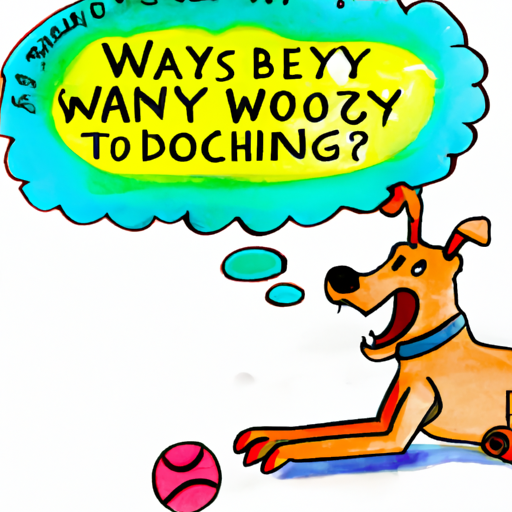If you are a dog parent, chances are, you’ve watched your furry friend play with their toys, gnawing at them with fervor. You might have wondered, “Why do dogs chew toys?” You’re not alone in this curiosity. This article seeks to unravel the reasons behind this seemingly strange dog behavior.
From the biological instincts of dogs to the benefits of chewing for their physical and emotional health, we will delve into the depths of this fascinating aspect of canine behavior.
Table of Contents
- Biological Reasons for Chewing
- Psychological Reasons for Chewing
- The Role of Toys in a Dog’s Life
- Choosing the Right Toy for your Dog
- Frequently Asked Questions
Key Takeaways
- Chewing is a natural instinct for dogs, driven by their evolutionary history.
- It’s a tool for exploration and stress relief.
- Toys play a significant role in a dog’s life, providing mental stimulation and physical exercise.
- Choosing the right toy for your dog can help prevent destructive chewing.
Biological Reasons for Chewing
Dogs are descendants of wild carnivores, and their ancestors relied heavily on their jaws to hunt, eat, and survive. This primal instinct is still alive in our domesticated friends, making chewing a natural and essential part of their behavior.
When puppies are teething, they chew to alleviate the discomfort. As they mature, their powerful jaws and strong teeth need regular exercise to stay healthy and robust. Chewing on toys provides the perfect workout for their oral muscles.
Psychological Reasons for Chewing
Chewing isn’t just about physical needs. It’s also a coping mechanism for dogs. When dogs are bored, anxious, or stressed, they may chew to calm themselves. It’s a form of canine stress relief.
For dogs, chewing can be a self-soothing activity. It releases pleasurable endorphins similar to the ones humans experience when jogging, often referred to as a ‘runner’s high.’ A good chew session can ease dog anxiety and produce a calming effect. This article provides more insight into the psychological reasons behind a dog’s need to chew.
The Role of Toys in a Dog’s Life
Toys are not just playthings for dogs. They serve multiple purposes. Toys provide mental stimulation, allow them to practice their instinctual behaviors, and keep them entertained when alone.
Chew toys, in particular, are beneficial for dogs. They provide the necessary resistance for a good chew, satisfying their instinctual urges. Chew toys also promote dental health by helping clean the teeth, reducing plaque and tartar buildup.
You can find more information on how to choose the right toy for your dog on OneTopDog.
Choosing the Right Toy for your Dog
Choosing the right toy for your dog is crucial to prevent destructive chewing habits. It should be safe, engaging, and suitable for your dog’s size and chewing strength.
Here are some factors to consider:
-
Size and Shape: The toy should be large enough so that your dog cannot swallow it. It should also fit comfortably in your dog’s mouth.
-
Material: The toy should be made of durable, non-toxic material that can withstand your dog’s chewing power.
-
Interest: The toy should be interesting to your dog. It can have different textures, make noises, or have a flavor.
-
Safety: The toy should not have parts that can easily be chewed off and swallowed.
For more tips on choosing the right toy, check out this guide on OneTopDog.
Frequently Asked Questions
-
Why does my dog destroy toys?
Dogs often destroy toys as an expression of their hunting instinct. They ‘kill’ their prey (the toy) by ripping it apart. It’s important to provide durable toys that fulfill this instinct without falling apart. -
Why does my dog prefer certain toys?
Dogs, like humans, have preferences. They might favor a toy because of its texture, size, shape, or the way it moves or sounds. Sometimes, they might associate a toy with a positive experience, making it their favorite. -
Is it bad for dogs to chew on plush toys?
Chewing on plush toys isn’t inherently bad for dogs. However, if your dog tends to rip them apart and ingest the stuffing, it can be harmful. Always supervise your dog when they are playing with plush toys.
Understanding why dogs chew toys can help us make informed decisions about their playtime. It allows us to choose the right toys and encourage healthy chewing habits, contributing to their overall well-being. For more insights into your dog’s behavior, visit OneTopDog.



